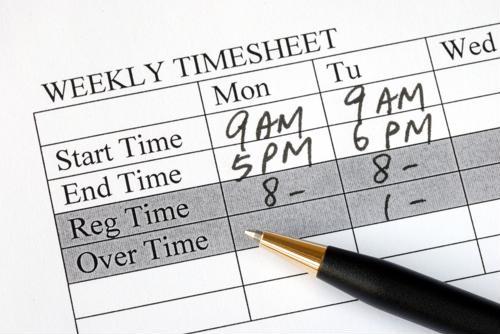
It's 2019, and businesses in virtually every industry are back to work, aiming to make good on the goals they've established and preparing for the challenges that are sure to develop. But this year, employers in over a dozen states will be doing so with new minimum wages in place, forcing companies to evaluate how pay increases will affect the supply chain.
Although the federal minimum wage remains at $7.25 - a rate that hasn't changed for 10 years running - employers in 19 states are increasing how much they spend for entry-level employees. As documented by Fisher Phillips, these states include California, Delaware, Florida, Massachusetts, Ohio, New York and Oregon, among others.
"The federal minimum wage has remained at $7.25 since 2009."
Even though the federal minimum hasn't budged since 2009, many of these same states had higher minimums already in place; this year, they'll be a few cents - or dollars - higher. The Buckeye State's minimum wage moves to $8.55 from $8.30 and in the Golden State, minimum wage workers will earn $12 per hour for businesses with 26 or more employees and $11 among companies with 25 staff members or fewer.
The previous hourly rates were $11 and $10.50, respectively.
Paul Sonn, state program policy director at the National Employment Law Project, told NBC News that these pay increases are a long time coming, as the cost of living continues to rise regardless of income.
"Right now, in an expensive state like California, a single worker needs about $20 an hour to afford the basics," Sonn explained. "Whereas $15 is what a single worker needs in a less expensive state such as Alabama, Florida or Texas."
All told, at least 17 million workers will see their pay levels rise as of Jan. 1, according to the NELP's calculations.
Does raising the minimum create or dissolve jobs?
While higher earnings no doubt come as great news to employees, there's some question as to whether raising the minimum wage will adversely impact businesses, and in so doing, the supply chain. Some studies suggest that it does, because in order to compensate, employers wind up cutting workers' hours or eliminating positions altogether.
However, other analyses come to opposite conclusions. Arindrajit Dube of the University of Massachusetts presented his finding recently at the American Economic Association's annual conference.
As reported by The Washington Post, Dube discovered that since 1979, raising the minimum wage wound up eliminating jobs that paid below the newly established minimums, but actually created positions that paid at or higher than the new amount.
"The decline in jobs paying less than the new minimum wage is offset by an increase in those paying more," the Post reported. "Jobs further up the pay scale are largely unaffected, as economists would expect - the minor fluctuations beyond $4 above the new minimum wage are not statistically significant."
As for how minimum wages rising will affect businesses' operating expenses, a Mercer survey of approximately 1,500 organizations found that budgets are poised to rise by approximately 3.4 percent after taking into account promotional and merit pay.
Karen Crone, chief human resources officer at Paycor, noted on behalf of HR Dive that businesses may want to offer performance-based incentives alongside their minimum wage adjustments. This may prompt workers to produce more of a quality product or service, thereby positively influencing the supply chain.


Post A Comment:
0 comments so far,add yours